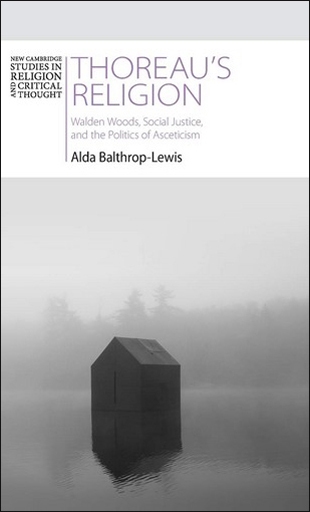Too often seen as a writer about nature and simple living, this book places Henry David Thoreau — still with those passions — squarely in the service of social justice.
As the author makes clear, Walden Woods, to which Thoreau famously retreated for a two-year experiment in living, “were not only a place of peace. They were also where people of color and poor people we now consider white (largely Irish) lived and worked. In going to the woods, [Thoreau] opened himself to encounter with people outside his social, racial, and class position.”
Balthrop-Lewis concludes the thought with: “During his time in Walden Woods, Thoreau made his world a little less segregated.” This is not what is traditionally taught about this secular saint in high-school classrooms.
The author points in other directions, as well, to show the real Thoreau, beyond his nature writings. In Walden, his most famous book — one of a handful of greatest American classics of literature — Thoreau says that “ownership can fool us.” “When we think we own the land alone, we can forget the alternative view: that it was given to all in common.” This is why Thoreau complains in Walden about landowners who put up fences, not simply because they interrupted his walking routes across a wilderness.
Balthrop-Lewis aims to show her fellow white environmentalists, who easily claim Thoreau as their own, that he was deeper and more complex than they imagine. She summarizes this best in this paragraph:
“[I want us] to see his radical commitment to justice as the outgrowth of the nature piety for which we have admired him. And to let him teach us to be the more wholesome people we might become, persons who can acknowledge our interdependence and work for the benefit of the goods we can only share in common if we want to avoid the moral and spiritual corruption that comes with deformed, unjust relationships with other people, other creatures, natural objects, ecosystems, and the land.”
There is also a fascinating chapter laying out the ways Thoreau offered a critique, still relevant, of philanthropy culture and of Christianity. (See the excerpt accompanying this review for a sample of this.)
